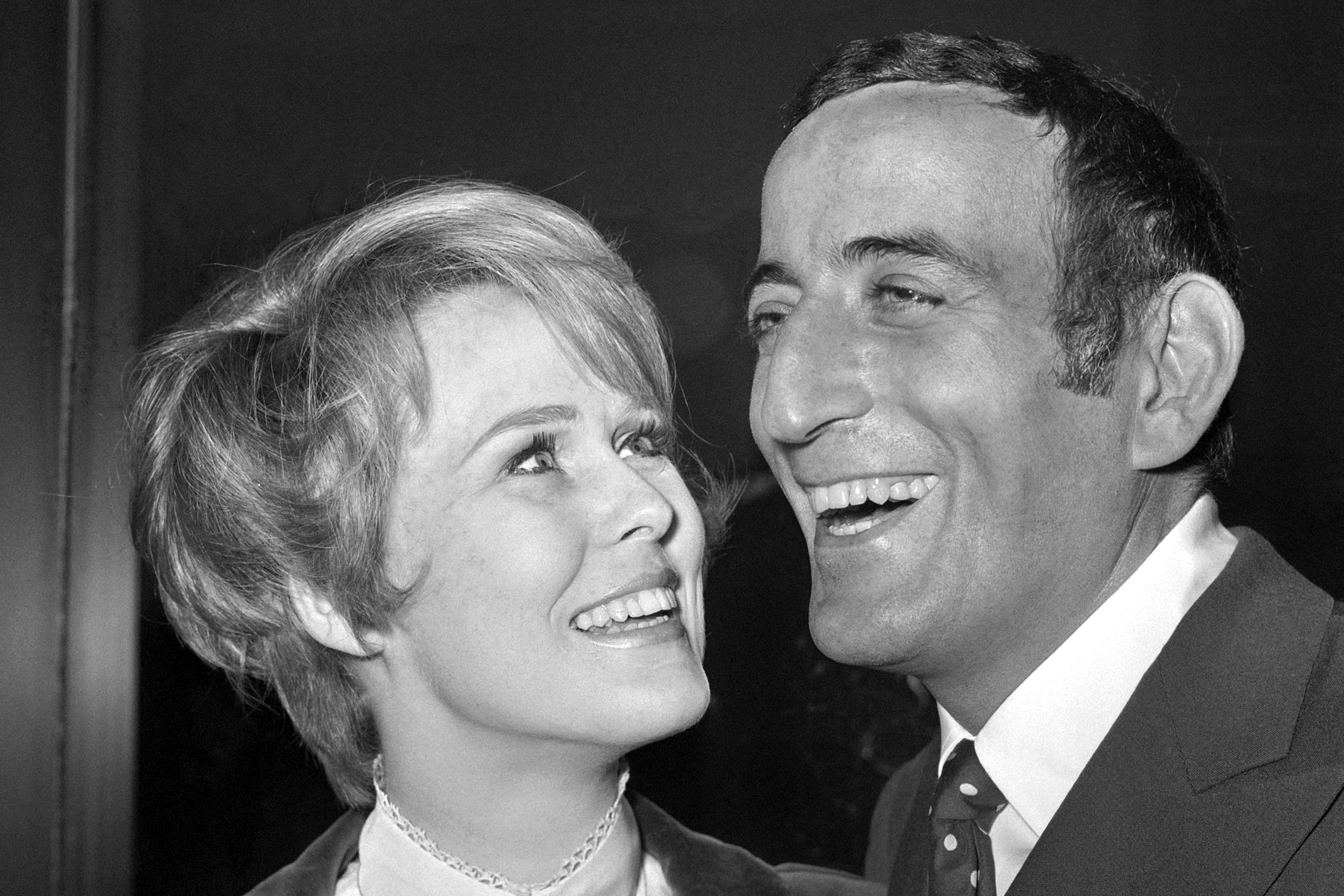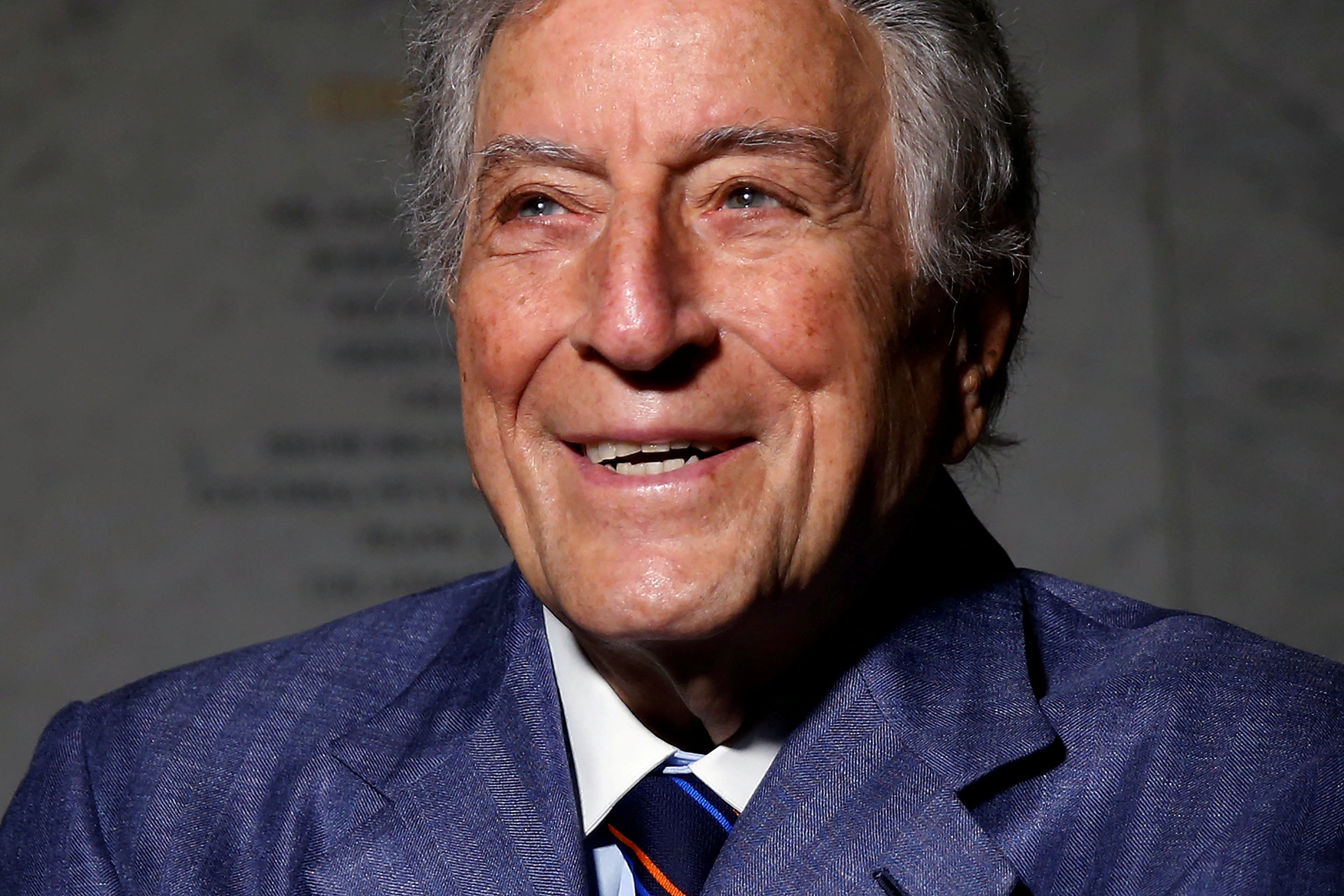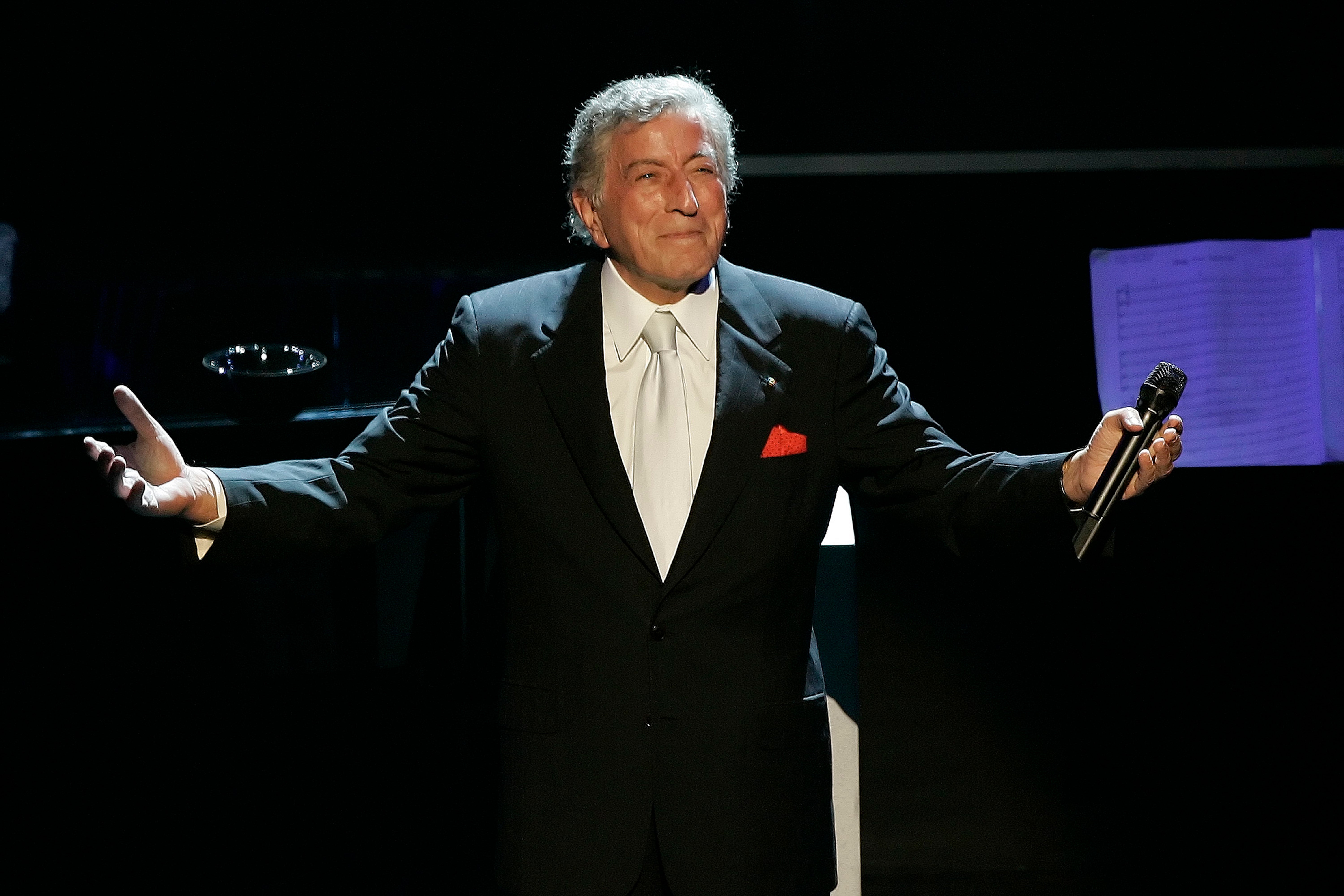Tony Bennett, one of the last great American crooners, dies aged 96
‘I Left My Heart in San Francisco’ crooner was diagnosed with Alzheimer’s disease in 2016
Your support helps us to tell the story
From reproductive rights to climate change to Big Tech, The Independent is on the ground when the story is developing. Whether it's investigating the financials of Elon Musk's pro-Trump PAC or producing our latest documentary, 'The A Word', which shines a light on the American women fighting for reproductive rights, we know how important it is to parse out the facts from the messaging.
At such a critical moment in US history, we need reporters on the ground. Your donation allows us to keep sending journalists to speak to both sides of the story.
The Independent is trusted by Americans across the entire political spectrum. And unlike many other quality news outlets, we choose not to lock Americans out of our reporting and analysis with paywalls. We believe quality journalism should be available to everyone, paid for by those who can afford it.
Your support makes all the difference.Legendary American singer Tony Bennett has died at the age of 96, leaving behind a legacy as one of the most masterful interpreters of the American Songbook of all time.
Known for his recordings of show tunes and jazz standards, Bennett released more than 70 albums over the course of his career, winning 19 Grammys.
His publicist Sylvia Weiner confirmed his death in a statement to Associated Press. He died in his hometown of New York, of undisclosed causes, having been diagnosed with Alzheimer’s disease in 2016.
Towards the end of his life, Bennett’s repeat collaborations with pop singer Lady Gaga introduced him to a new generation of fans.
Among his best-known hits were “Rags to Riches” and “I Left My Heart in San Francisco”, the latter of which became his signature song.
Bennett was born Anthony Benedetto in New York in 1936, the child of Italian immigrants. His father died when he was just 10 years old, leaving his mother, a seamstress, to raise him and his two siblings.
Bennett first rose to prominence in the 1950s, as a crooner known for recording commercially successful pop songs, including 1951’s “Because of You”. He would later describe his vocal identity as being “a tenor who sings like a baritone”.
His musical style quickly developed and he branched out into other musical forms, including show tunes and big band numbers.
Among the revered musicians to have celebrated Bennett was Frank Sinatra, who told Life magazine in 1965: “For my money, Tony Bennett is the best singer in the business. He excites me when I watch him. He moves me. He’s the singer who gets across what the composer has in mind, and probably a little more.”
Enjoy unlimited access to 100 million ad-free songs and podcasts with Amazon Music
Sign up now for a 4 month free trial (3 months for non-Prime members)
Enjoy unlimited access to 100 million ad-free songs and podcasts with Amazon Music
Sign up now for a 4 month free trial (3 months for non-Prime members)
In the late 1960s and 1970s, Bennett found his popularity on the wane. At the record company’s behest, he recorded an album of contemporary pop covers, titled Tony Sings The Great Hits Of Today, which, he claims, was so bad it caused him to vomit.
“I threw up in the record company offices and walked out,” he recalled to The Independent in 2008. “And that was pretty much that.”

In the 1970s, Bennett was reported to have suffered from depression and substance abuse issues. At the same time, he had relocated to the UK, and worked with composer Robert Farnan on a series of commercially unsuccessful but, he would later say, creatively fulfilling records.
It has often been rumoured that Bennett suffered a near-fatal overdose in 1979; he would later describe this as a “lie”.
“It never happened,” he later said. “Sure, I did maybe indulge in moderate drug use, but the whole country did back then. It’s the same old routine: you start out on marijuana and then somebody hands you cocaine. If you keep going with that, you die. I stopped.”
He also came close to bankruptcy in the 1980s, which he avoided thanks to the shrewd business help of his son, musician Danny Bennett.
But then, in the 1990s, a resurgence brought him renewed acclaim and popularity. Bennett’s renewed popularity with younger audiences was fuelled in part by a memorable appearance on the televised music programme MTV Unplugged in 1994.

By the late 1990s, he was performing at Glastonbury, shooting up the charts, and even appearing on The Simpsons. Seventeen of the Grammy awards he won would come after he had already reached his sixties.
Asked about the comeback by The Independent in 2008, Bennett said: “A surprise? It wasn’t a surprise at all. And I’ll tell you why. Good music is good music. I’m not concerned with whether someone who listens to me is old or young. In fact, in many ways, I’m not interested in the young at all.
“I’m interested in age. People learn to live properly when they get of an age, you know? The late [jazz pianist] Duke Ellington once said to me that he was really offended by the word ‘category’. Music has no category; it’s either good or it isn’t, and I sing good songs, great songs, written by the best songwriters. It’s that kind of quality that makes them last. Trust me, people will be singing these songs forever.”

He continued touring well into old age, with his music continuing to be enjoyed by listeners across the globe. In 2014, his collaborative album with Lady Gaga, titled Cheek to Cheek, earned a spot at No 1 on the Billboard charts.
The achievement consolidated Bennett’s status as the oldest living performer to have a No 1 album on the Billboard 200, at the age of 88. He had previously set the record three years prior with his album Duets II, featuring collaborations with Gaga, Carrie Underwood and – in what was her final studio recording – Amy Winehouse.
Bennett subsequently toured with Gaga, and, in 2021, released another joint album, Love for Sale.

In 2016, Bennett was diagnosed with Alzheimer’s, but the singer did not make his condition public until 2021.
“Life is a gift – even with Alzheimer’s,” he wrote, in a message to fans at the time. “Thank you to Susan and my family for their support, and AARP The Magazine for telling my story.”
Due to the illness, Bennett retired from performing in August 2021. His final performance came with two sold-out shows alongside Lady Gaga at New York’s Radio City Music Hall. At the final concert, Bennett performed a 30-minute set of songs including “Fly Me to the Moon” and “Steppin’ Out with My Baby”.

After news of his death broke, friends and contemporaries shared tributes on social media.
“My most heartfelt condolences go out to Tony Bennett’s family and friends. They’re also my emotional family and friends,” wrote Nile Rodgers.
“RIP Tony Bennett. Such a big loss,” wrote Carol King on Instagram. “Deepest sympathy to his family and the world.”
Guitarist Joe Bonamassa wrote: “Rest in Peace to one of the best to ever grace the stage. I was just saying that the greatest gig I had ever witnessed was Tony Bennett at North Sea Jazz in 2012. It was like dropping a needle on a record. He was the last of the greatest generation of singers and musicians.”
Bennett is survived by his wife, Susan, and his four children: Danny and Dae (from his first marriage to Patricia Beech), and Joanna and Antonia (from his second marriage to Sandra Grant).




Join our commenting forum
Join thought-provoking conversations, follow other Independent readers and see their replies
Comments